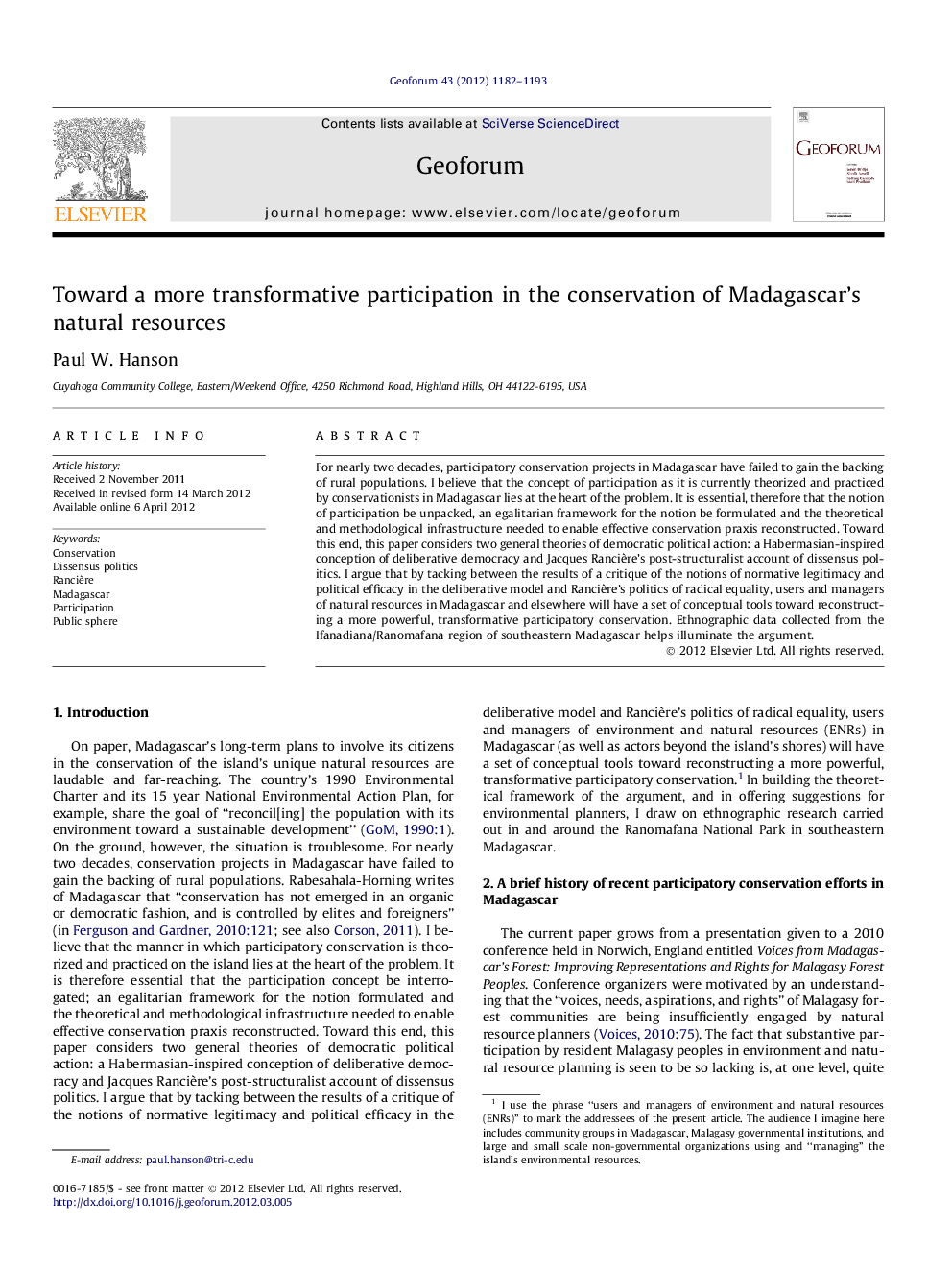| Article ID | Journal | Published Year | Pages | File Type |
|---|---|---|---|---|
| 5074316 | Geoforum | 2012 | 12 Pages |
For nearly two decades, participatory conservation projects in Madagascar have failed to gain the backing of rural populations. I believe that the concept of participation as it is currently theorized and practiced by conservationists in Madagascar lies at the heart of the problem. It is essential, therefore that the notion of participation be unpacked, an egalitarian framework for the notion be formulated and the theoretical and methodological infrastructure needed to enable effective conservation praxis reconstructed. Toward this end, this paper considers two general theories of democratic political action: a Habermasian-inspired conception of deliberative democracy and Jacques Rancière's post-structuralist account of dissensus politics. I argue that by tacking between the results of a critique of the notions of normative legitimacy and political efficacy in the deliberative model and Rancière's politics of radical equality, users and managers of natural resources in Madagascar and elsewhere will have a set of conceptual tools toward reconstructing a more powerful, transformative participatory conservation. Ethnographic data collected from the Ifanadiana/Ranomafana region of southeastern Madagascar helps illuminate the argument.
⺠Three decades of participatory conservation programs in Madagascar are examined. ⺠Concluded that most programs fail to meet their participatory objectives. ⺠Deliberative models of democracy are critiqued. ⺠Rancière's approach to radical democratic politics is explicated. ⺠A synthesis of reconstructed deliberative models and Rancière's approach suggested.
